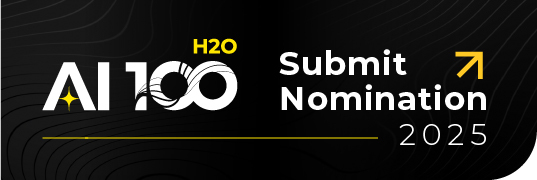- Activation Function
- Confusion Matrix
- Convolutional Neural Networks
- Forward Propagation
- Generative Adversarial Network
- Gradient Descent
- Linear Regression
- Logistic Regression
- Machine Learning Algorithms
- Multilayer Perceptron
- Naive Bayes
- Neural Networking and Deep Learning
- RuleFit
- Stack Ensemble
- Word2Vec
- XGBoost
A
C
D
G
M
N
R
S
X
- Activation Function
- Confusion Matrix
- Convolutional Neural Networks
- Forward Propagation
- Generative Adversarial Network
- Gradient Descent
- Linear Regression
- Logistic Regression
- Machine Learning Algorithms
- Multilayer Perceptron
- Naive Bayes
- Neural Networking and Deep Learning
- RuleFit
- Stack Ensemble
- Word2Vec
- XGBoost
What is Artificial Intelligence Risk Management?
Artificial intelligence (AI) has increased the efficiency of running a business. It is used in various fields such as marketing, operations, security, and customer service. However, those using AI to compete in the market must manage the risks that come with AI and its development. Organizations should build risk management into their AI models to oversee internal development and external provisioning constantly.
Application of Artificial Intelligence in Risk Management
AI can be used to assist risk management in an assortment of ways. The top four most commonly used are:
Threat analysis and management
Machine learning (ML) models analyze large quantities of data from a variety of sources that generate real-time prediction models. This allows risk management teams to address risks in a timely manner. These models are imperative to developing early warning systems which keep operations uninterrupted and protect the organization’s stakeholders.
Risk reduction
AI has the capability to assess unstructured data involving risky behaviors in a company's operations. It can analyze patterns related to past incidents and convert them as risk predictors.
Fraud detection
With ML models focusing on text mining, social media analysis, and database searches, AI systems can decrease the workload that traditionally required intense analysis processes and reduce fraud threats.
Data classification
Based on established regulations, AI tools categorize and classify data that is uploaded and generated in the cloud environment. Additionally, they can monitor for access based on recognized content, categories, and trends.
Challenges of Managing Artificial Intelligence Risks
Even with the inherent advantages of AI in risk management, combining AI and risk management procedures has disadvantages. Processing large amounts of data can be costly, and specialized AI services will be expensive. Privacy is another crucial concern. Companies that upload data to cloud services need data protection measures, such as encryption, transit security, tokenization, and obfuscation.
What is the Future of Artificial Intelligence in Risk Management?
AI has become a helpful tool in risk management. However, it is changing slowly. As cloud-based AI and ML services become more common, risk management teams will gain from the quick analytics processing of large data sets, relieving the pressures of manual risk management and analysis procedures. Regulatory and data access rights must be acknowledged to have AI effective in risk management.










